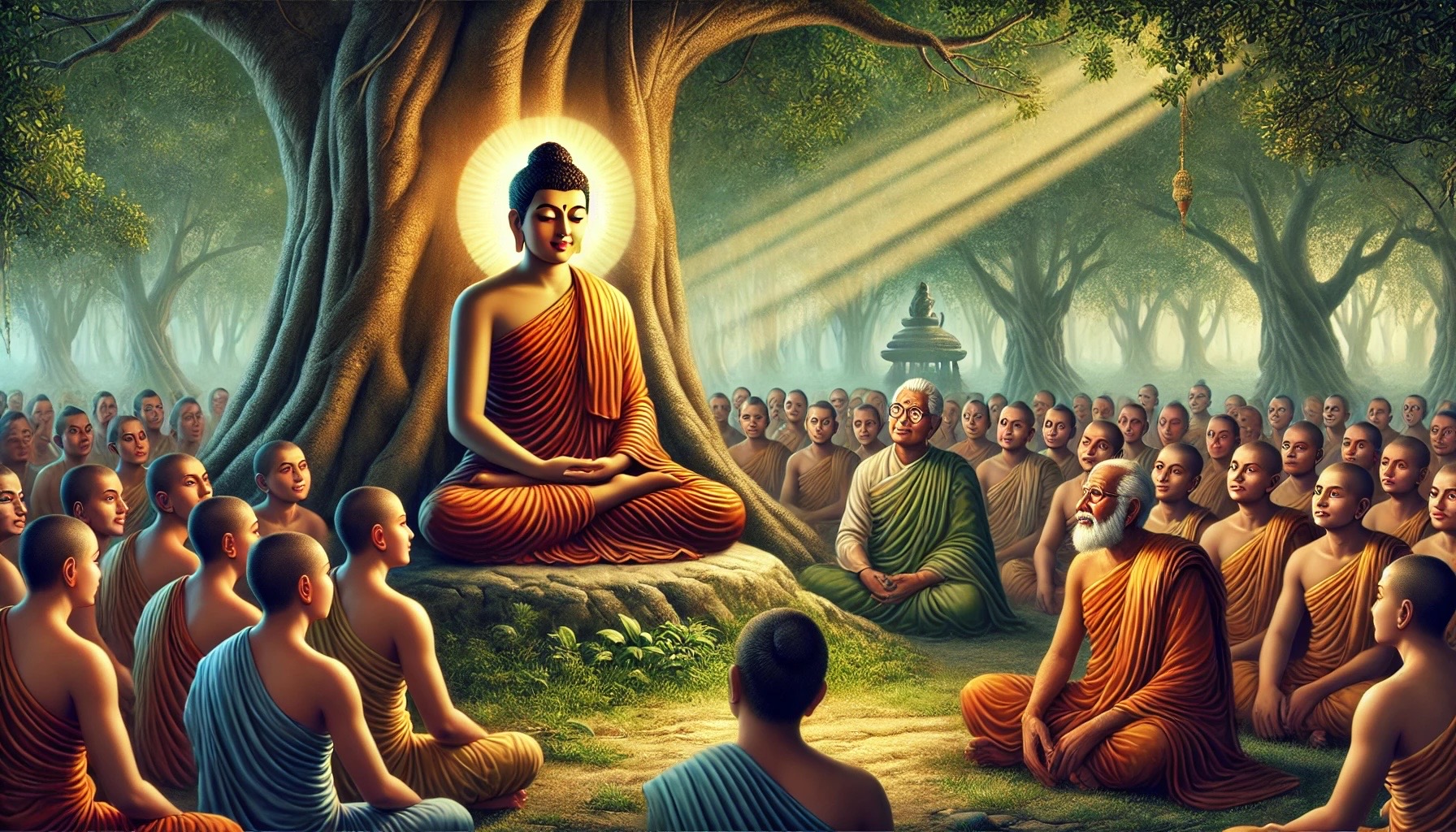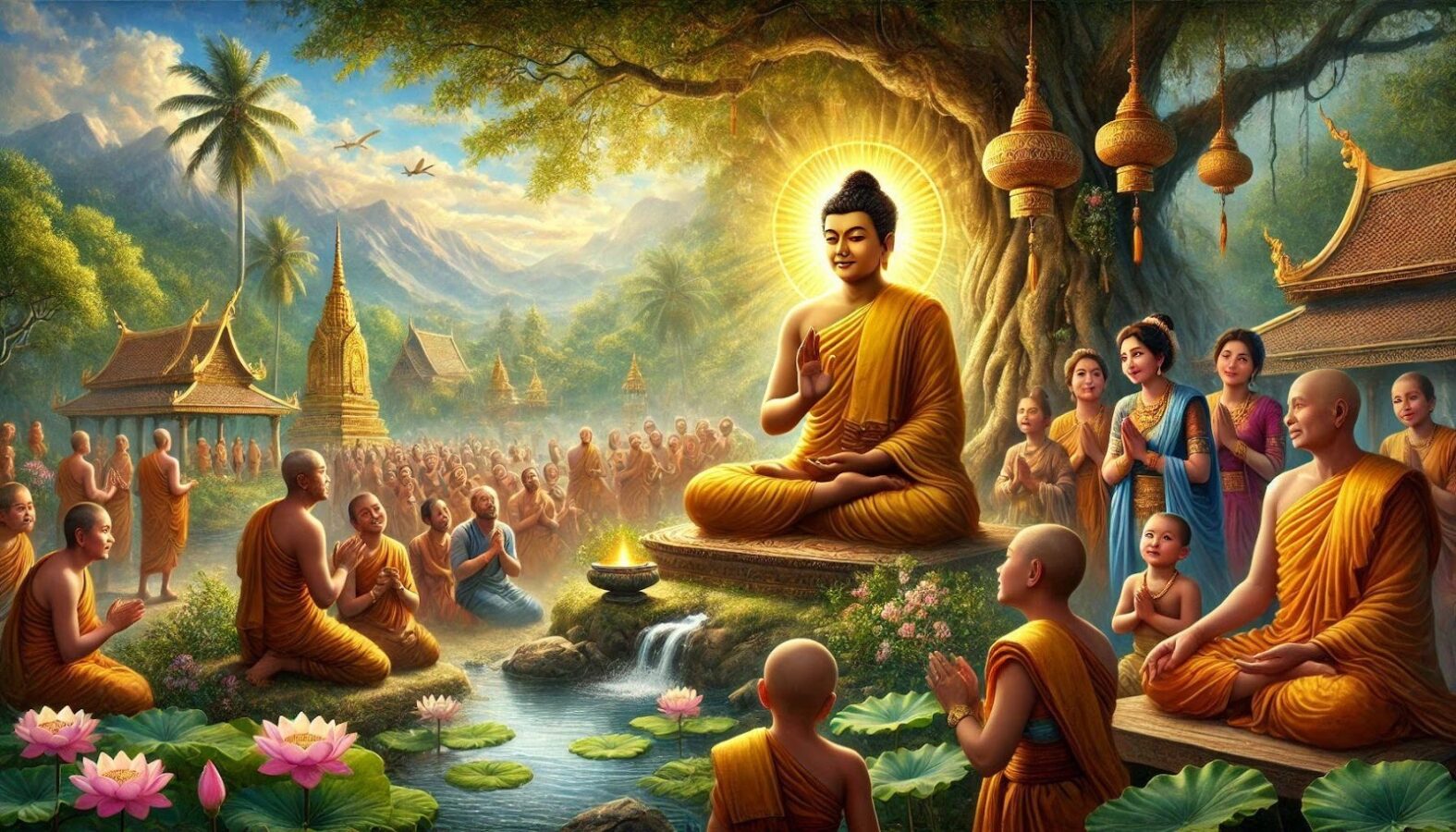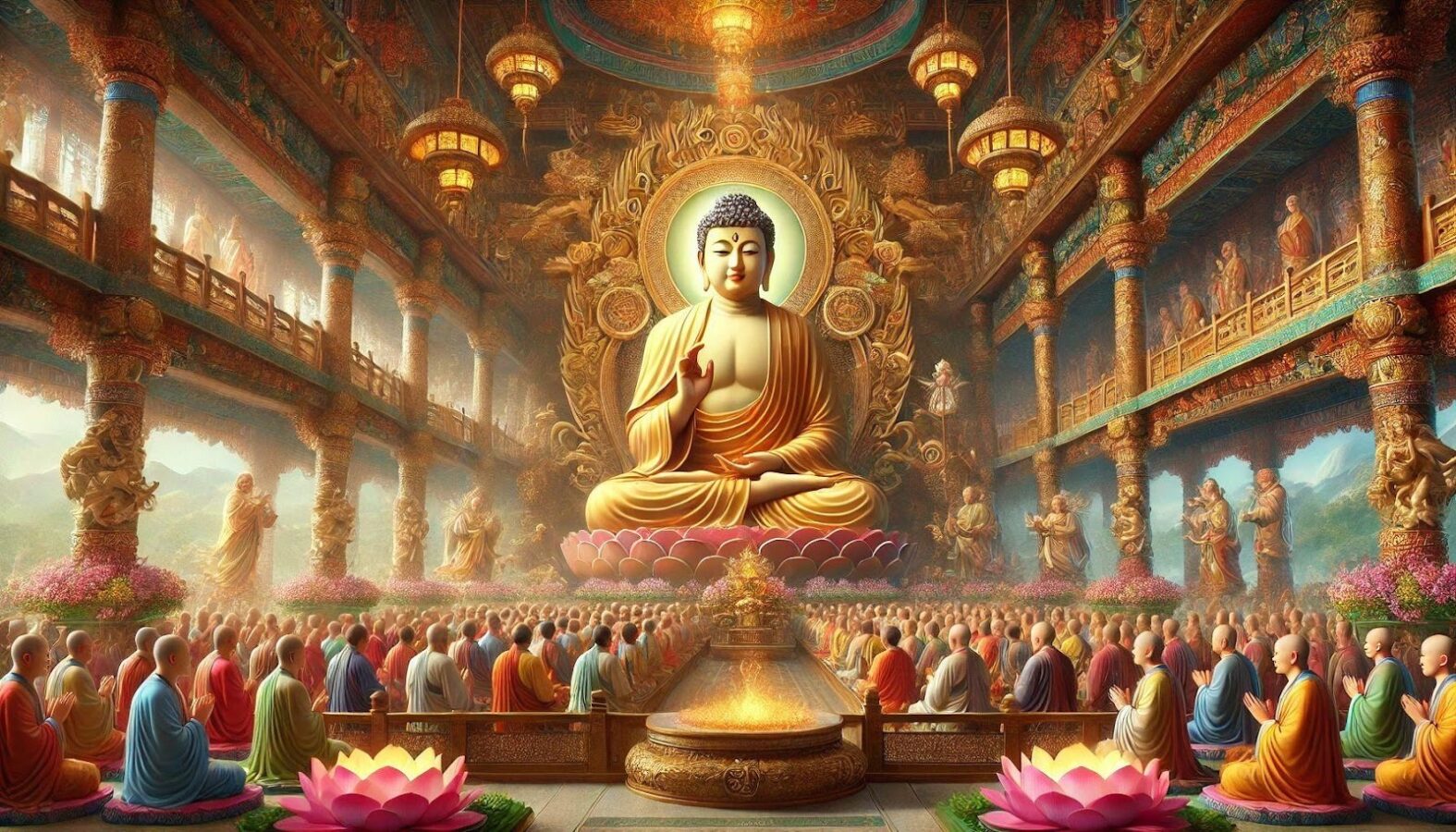
Date: 08/31/2024 09/01/2024
Location: Star Lake Meditation Center
Teacher: Otto Huang
Dharma Talk
Is There a True Self? – Saccaka’s Debate Challenge (Part One)
Once, the Buddha traveled to the capital of the Licchavis, Vesali, and stayed in the nearby Great Forest Monastery.
At that time, Saccaka, a follower of the Jain sect and the son of one of its disciples, was also residing in Vesali.
Saccaka was well-versed in various theories and was an unimpeded orator, revered by many at that time. He had once declared in front of a crowd in Vesali:
“I do not expect any ascetic, Brahmin, their leaders, teachers, or even those who claim to be fully enlightened, to debate with me without being shaken, trembling, sweating, and defeated. Even an insentient pillar would tremble under my arguments.”
One morning, Saccaka encountered the Venerable Assaji while he was on his alms round in Vesali and asked him,
“Teacher Assaji, how does the ascetic Gotama teach his disciples?”
“Householder Aggivessana, the Blessed One often teaches us to observe the aggregates of form, feeling, perception, formations, and consciousness as impermanent and not-self.”
“Teacher Assaji, how could the ascetic Gotama teach such a thing? Either you have misunderstood, or the ascetic Gotama holds a wrong view. I will find a time to meet Gotama and clarify this matter with him in person.”
Consequently, Saccaka publicly announced in the assembly hall of the Licchavis that he would challenge the Buddha in debate. If the Buddha’s views were indeed as Venerable Assaji had stated, he would defeat him.
Debating the Buddha? This sensational news naturally stirred discussions among the Licchavis, who, curious, followed Saccaka to the Buddha’s residence to witness the event.
After exchanging customary greetings with the Buddha, Saccaka questioned him,
“Master Gotama, I have heard that you often teach your disciples to observe the aggregates as impermanent and not-self. Is this true?”
“Householder Aggivessana, it is indeed so.”
“Master Gotama, this compels me to present a metaphor in rebuttal: Just as any seed and plant depend on the soil to grow, so must a person regard form as the ‘true self’; or regard feeling, perception, formations, and consciousness as the ‘true self,’ to arise from this ‘true self’ either good or evil.”
“Householder Aggivessana, are you saying that form is the ‘true self’; or that feeling, perception, formations, and consciousness are the ‘true self’?”
“Yes, Master Gotama! That is what everyone believes.”
“Householder Aggivessana, I am asking you to discuss your stance, why mention everyone else?”
“Alright, Master Gotama! I firmly believe that form is the ‘true self’; feeling, perception, formations, and consciousness are the ‘true self.'”
“Householder Aggivessana, please answer truthfully what you know. For example, like King Pasenadi of Kosala, who exercises his sovereign power freely within his territory, can you freely change ‘form,’ to make it like this or not like that?”
Saccaka remained silent, knowing that a key response could dismantle his argument, but found it difficult to concede in front of so many people. Despite the Buddha’s repeated questioning, he remained silent.
At this moment, a mighty yaksha, unable to bear it any longer, shouted from the air to Saccaka,
“Householder Aggivessana! The Blessed One has asked you three times, why do you not answer? If you do not answer, I will smash your head with my vajra.”
Terrified, Saccaka quickly answered the Buddha truthfully,
“No, Master Gotama!”
“Householder Aggivessana! Think carefully, please note that your current answer contradicts your previous claim that ‘form is the true self; feeling, perception, formations, and consciousness are the true self.’ Let me ask you again, is form permanent or impermanent?”
“Impermanent, Master Gotama!”
“Is what is impermanent suffering or happiness?”
“Suffering, Master Gotama!”
“Being impermanent and suffering, would the wise regard these changing phenomena as having a ‘true self,’ belonging to a ‘true self,’ containing a ‘true self,’ or being encompassed by a ‘true self?’ Would they think ‘this is mine,’ ‘this is I,’ ‘this is my true self?'”
“They would not, Master Gotama!”
“And would you?”
“I would not, Master Gotama!”
“Householder Aggivessana! If one cannot detach from craving, desire, attachment, and thirst for form, feeling, perception, formations, and consciousness, and if they change, would it lead to sorrow and suffering?”
“It would, Master Gotama!”
“Householder Aggivessana! It is like a person carrying many burdens of suffering, always with suffering, continuously, tirelessly, will never be happy.
Householder Aggivessana! I sought truth in your arguments, but found none. It is like someone who goes into the mountains looking for solid heartwood but chops down a large, straight banana tree. Peeling it layer by layer, they find nothing inside, no solid heartwood to be found! Your arguments are like that banana tree, impressive to look at but not useful. Did you not boast that you could debate anyone and make them tremble and sweat? Look! Your clothes are soaked with sweat and dripping onto the ground, yet I do not sweat.”At that moment, Saccaka could only sit there in shame, annoyance, bowing his head, silently enduring the mockery from the surrounding Licchavis. To avoid further embarrassment, Saccaka quickly asked the Buddha for a teaching, and the Buddha once again taught the doctrine of ‘not-self’ to the public.
In the end, Saccaka deeply regretted his rash, reckless, and ill-intentioned challenge and asked to offer food to the Buddha the following day as an apology, which the Buddha silently accepted.

